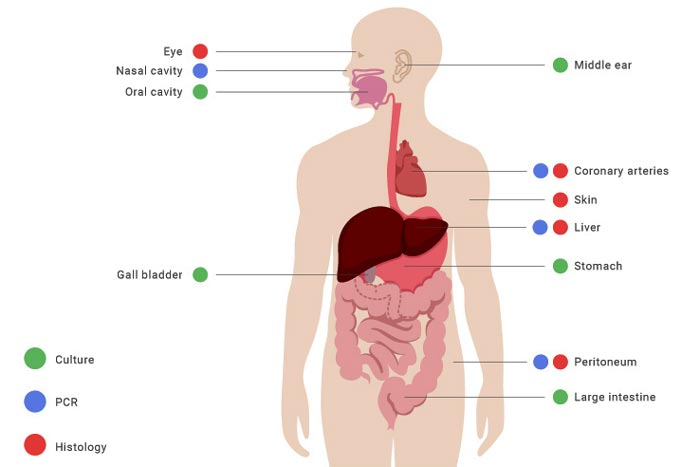H.pylori Infection: Symptoms, Diagnosis, Treatment
Helicobacter pylori, one of the oldest bacteria, has infected humans for thousands years. Up to two thirds of the population of the planet harbors this microbe. H.pylori is spread by contaminated water and food, or through direct mouth-to-mouth contact. This infection is easily detectable and there are effective treatments available.
H.pylori Symptoms
Is not a common symptom for most people. Most people who develop symptoms have indigestion, reflux (acid reflux), burping, bad breath, and loss of appetite. Constipation or diarrhea are common bowel movements, and many people lose weight without dieting.
[ruby_related heading=”More Read” total=3 layout=1 offset=5]
H.pylori can cause stomach cancer or ulcers. Gastritis is characterized by stomach upset and nausea. Ulcers are characterized by a dull pain around the stomach, nausea, vomiting and heartburn. symptoms can become more severe if ulcers progress further to cancer. Weight loss is common, as well as fluid accumulation in the abdomen and signs of anemia.
Conditions associated with Infection
Recent studies have revealed that H.pylori can cause other symptoms as it causes inflammation in the entire body. In the past it was thought that the bacterium only lived in the stomach. Scientists have discovered evidence of H.pylori on other parts of the human body, including the skin, blood vessels, mouth and ears.
H.pylori also disrupts digestion and hormones. The i infection has been linked to:
- Fatigue.
- Stress.
- Anxiety.
- Depression.
- Headaches.
- Rosacea is a common skin condition.
- Hair loss.
- Heart rate and blood Pressure Changes
- Sleep disorders.

H.pylori can also cause other conditions, such as IBS and SIBO.
This infection can cause inflammation and disrupt digestion, as well as the gut-brain connection, which links various brain centers with gut intestinal functions. This can lead to fatigue, brain fog, food intolerances and multiple nutritional deficiencies. You should consult a physician to assess your condition. These symptoms may be linked with other diseases or infections.
H.pylori Cancer
According to the National Cancer Institute (NCI), H.pylori is responsible for most ulcers in stomach and upper small intestine and can also increase pancreatic cancer risk. This bacterium has been classified as a cancerous agent.
In 2018, the US saw an estimated 2.2 millions cases of cancer. In the US, 13% of cancer cases were caused by infections that can be treated. H.pylori was the leading culprit.
Some strains of H.pylori such as cagA positive, appear to be more likely than others to cause stomach carcinoma. H. pylori infections may protect against cancers of other types. H.pylori infection may lower the risk for esophageal cancer. However, more research is required.
H.pylori Diagnosis
It is important to conduct lab tests in order to detect H.pylori and begin an effective treatment.
- Breath Test. It is an excellent option because it is accurate and confirms a current infection. This test may be affected by antibiotics or acid blockers. To avoid false negatives, it is best that you take the test eight weeks after you have finished taking these medicines.
- Stool Tests. A stool antigen test measures the presence of foreign proteins that are associated with H.pylori in your stool. Antibiotics and acid blockers may interfere with results. The stool polymerase-chain reaction test can detect both the infection as well as strains resistant to antibiotics. This test is expensive.
- Endoscopy. The doctor can examine stomach tissue and look for signs of infection. Samples are also taken. The samples are sent to a laboratory to confirm the diagnosis. The invasive nature of endoscopy means that it is only used in certain cases.
- Blood Tests have a lower accuracy and are therefore rarely used. They cannot confirm an infection or determine if the treatment has been successful.
H.pylori Treatment
Infections are usually treated with two or three antibiotics at once to prevent the bacteria from becoming resistant. This dual treatment includes amoxicillin, clarithromycin and metronidazole for 10-14 day.
The sequential therapy is an improved form of antibiotic treatment whereby two antibiotics are administered during the first five-day period, and then another combination of antibiotics for the next five.
Along with the antibiotics, acid-blocking may be given. Bismuth subsalicylate is included in some H.pylori protocol to increase efficacy and protect stomach tissue. A second test may be required to confirm that the bacteria has been eradicated.
Resources







